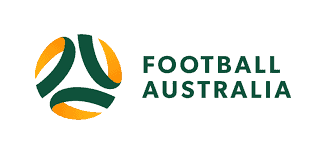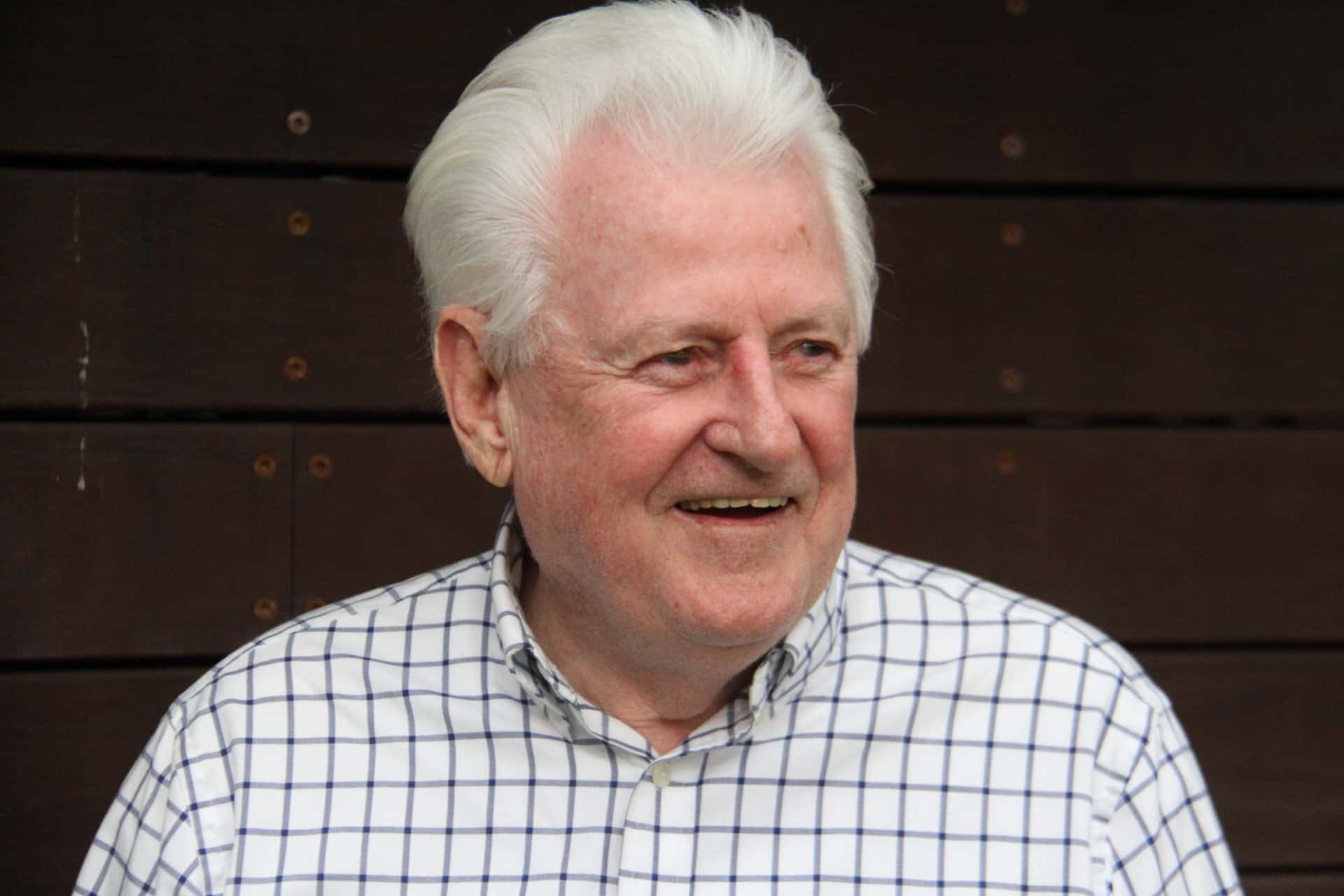
Jim Roberts undoubtedly one of the fathers of Australian futsal. Photo: Lachlan Roberts
In the hundreds of players that play futsal in Canberra every year, very few would recognise the name Jim Roberts – Australia’s first elite futsal coach, trailblazer, and undoubtedly one of the fathers of Australian futsal.
Born in Sydney’s southwest suburb of Panania in 1948, a young Jim Roberts was one of Australia’s brightest football prospects, scoring two goals in Australia’s first ever U16 international match against New Zealand in 1964.
Instead of choosing a life as a professional footballer, Roberts chose to settle down as a family man and raise his three kids in Canberra. At this stage, he was still fully unaware of futsal – a sport being played by kids on the streets of Brazil.
Working in the Attorney-General’s department, he seemed destined for a life as a public servant. Unbeknownst to him, he was about to discover a sport that he would champion, tirelessly working to see the sport integrated into the Australian sporting landscape.
The first step in that journey was taken in 1984 when Jim accepted the position of Vice President of the Australian Indoor Soccer Federation (AISF). According to Jim, indoor soccer was a sport only played during wet weather and “was more like dodgeball”.
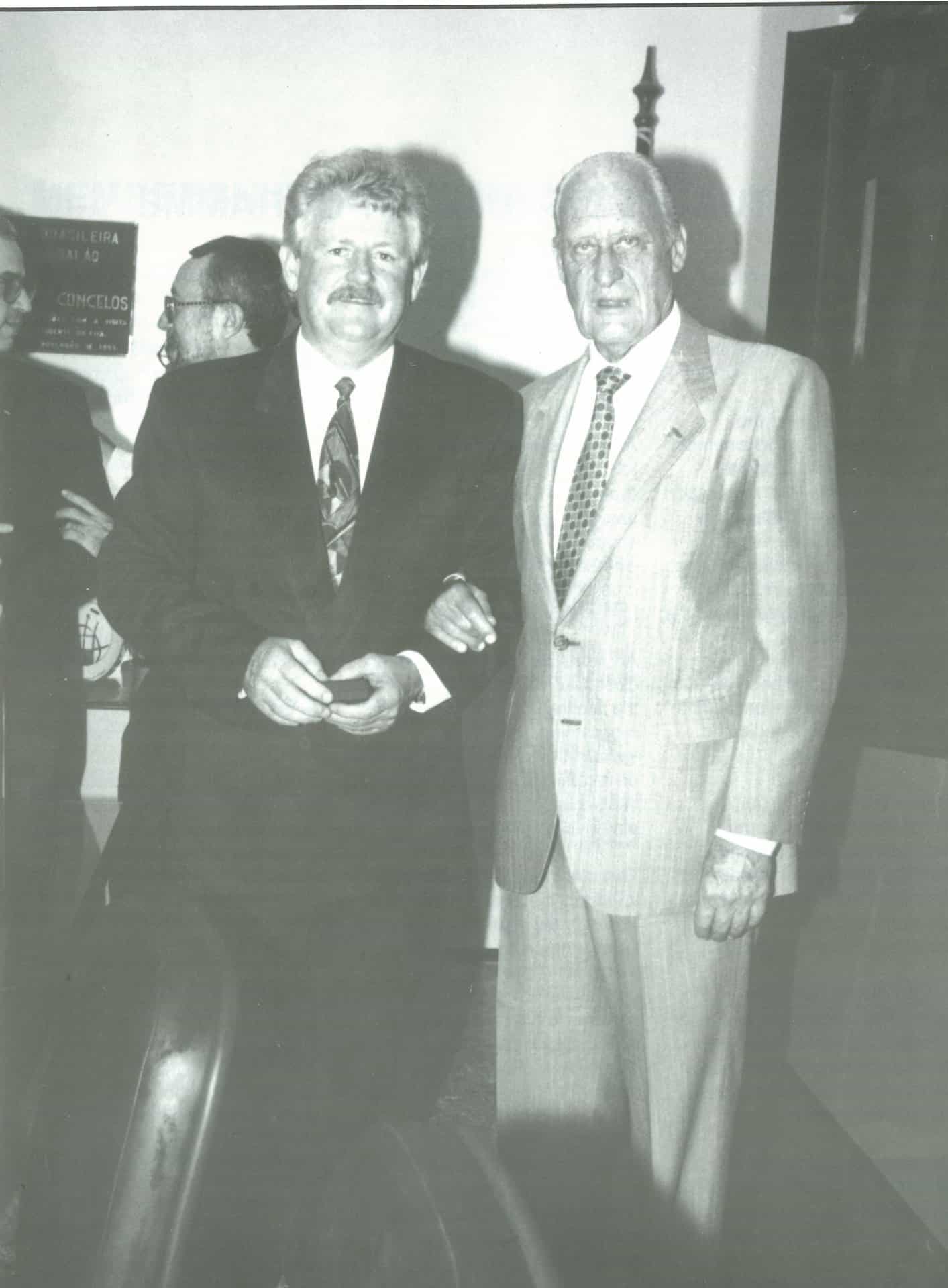
Head coach Jim Roberts in conversation with the president of FIFA, Dr. João Havelange in 1993. Photo: Supplied.
It was during this time that he first heard about futebol de salão – or futsal as it is now called. He distinctly remembers the moment his long-time friend, the late Johnny Warren, called him to share the news of his discovery.
“Johnny went to Brazil because he was mad about football,” Roberts recalls. “He didn’t have any connections, he just went. One day, he rang me up one day and said ‘there is this game in Brazil called futebol de salão and you have to see it’.
“He showed me some pictures and that was it, we were off to Brazil to learn more.”
Jim began to feverishly design and implement a futsal training program, utilising international exchange programs with other countries, forming a strong relationship with Brazil in the process.
Fuelled by his desire to see futsal become a world game, Jim approached FIFA to propose that they integrate it into their structure as the standard code of five-a-side indoor soccer. FIFA agreed and futsal, as a world sport, was born.
Not content to just grow the game of futsal, Jim devoted 17 years as President of ACT Sports House from 1985 to 2003, which under his Presidency became ACTSport, the peak industry body for sport in the ACT.
Alongside Charles Perkins, the civil rights activist who dedicated his life to achieving justice for Aboriginal and Torres Strait Islander people, Jim also devised the first Aboriginal Futsal Cup, leading the first Australian Aboriginal futsal team in 1987.
“I was coaching the national team and one day Charlie approached me and said ‘we should have an Indigenous team’,” Jim recalled. “So I rang Canada, who were good friends of ours, and we started organising the Aboriginal Futsal Cup in Vancouver, which would be a best of three series against Indigenous Australians and Canadian Native Indians.
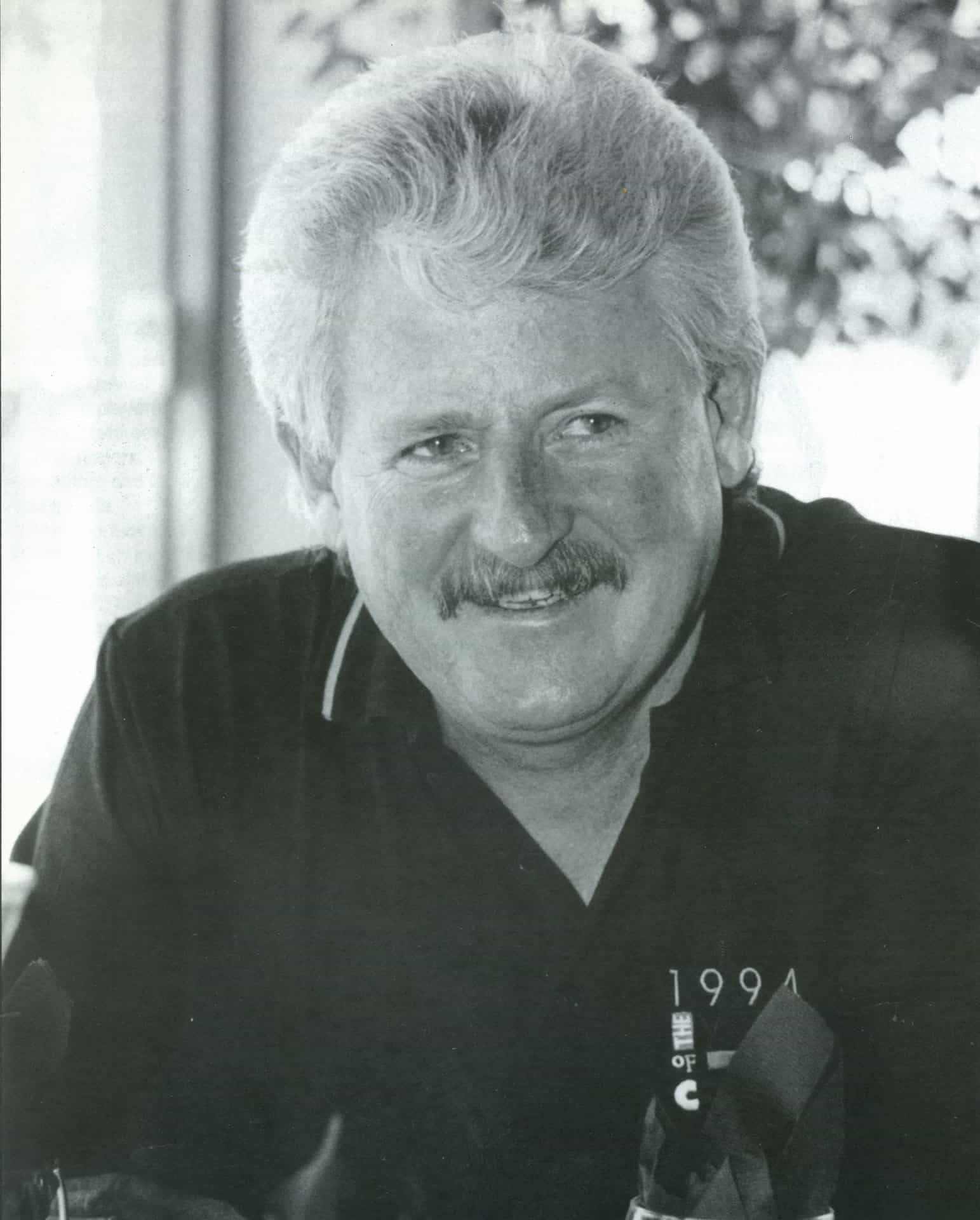
Photo: Supplied.
“The funny part about it was that the public interest was so strong that they moved the games from an indoor venue to an ice hockey rink so that 5,500 people could watch the games.
“They laid down wooden planks over the ice and put together a makeshift futsal court but the games were stopped at half time for 20 minutes so they could wipe the water up because everyone was slipping over,” he said laughing.
But it was their experience in Canada which truly represents the beauty of futsal.
“Futsal doesn’t have to be played in an indoor centre,” Jim said. “Futsal first evolved by necessity and need, not by design. South American countries did not have the facilities to play football so the sport was born because the kids would play anywhere.
“Because they didn’t have any money, the ball was a pigskin filled with socks. That is the beauty of futsal which has now evolved to its current format.”
In the 1990s, Roberts took over as the coach of the national futsal team, leading Australia to the 1992 FIFA Futsal World Cup finals in Hong Kong, the first qualification-based World Cup the sport had seen, where Australia finished 13th.
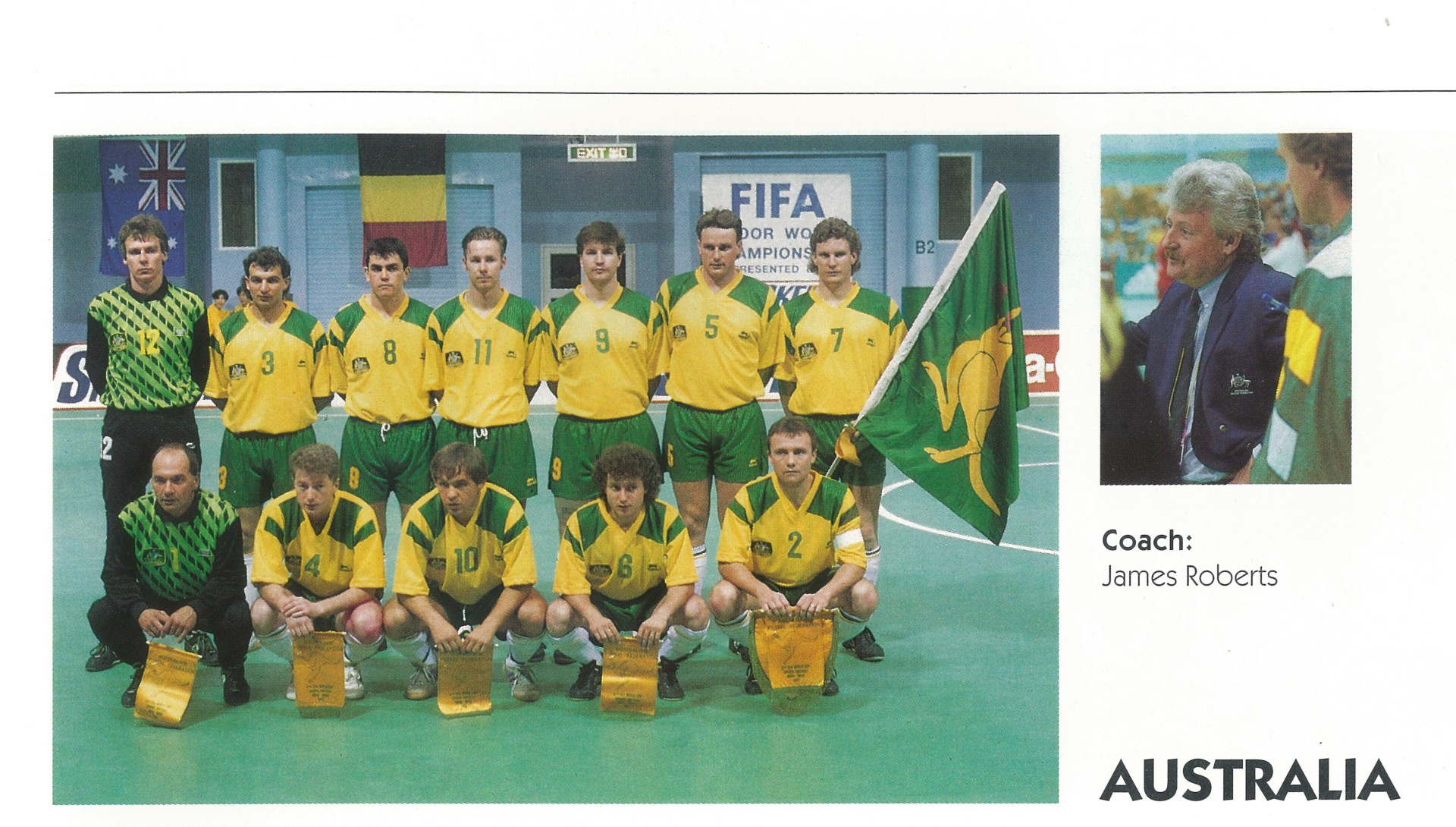
The Australian futsal team that Jim Roberts coached at the 1992 FIFA Futsal World Cup finals in Hong Kong. Photo: Supplied.
He went on to lead the national side to the next two FIFA Futsal World Cups, where they finished 14th and 15th, proving that Australia was a futsal country. Jim went on to implement five nationally televised national leagues for futsal between 1988 and 1995 and was an official delegate to the first FIFA Congress on Futsal in Guatemala in 2000.
His undying passion for the game saw him receive an Australian Sports Medal in 2000, awarded for his contribution to the development of sport and recreation in the ACT. His contribution to the development of futsal throughout the world was not missed by the CBFS (Brazilian Futsal Confederation), who also presented him with an achievement award.
In 2010, he was inducted into the ACT Sport Hall of Fame and Capital Football’s Hall of Fame but it is not the accolades that bring him pride.
“I was walking in Sydney one day and a man I didn’t recognise came up to me and said ‘are you Jimmy Roberts, because I want to thank you’,” Jim recalled with tears in his eyes. “He said to me ‘you helped me achieve my goals of representing my country. I want to thank you because you changed my life’.
“That conversation reminded me that I did make a difference. It was more than status and trophies. I changed one kid’s life. That is my proudest achievement in sport.”
This is part one of a series honouring and telling the stories of Capital Football’s Hall of Fame inductees.


